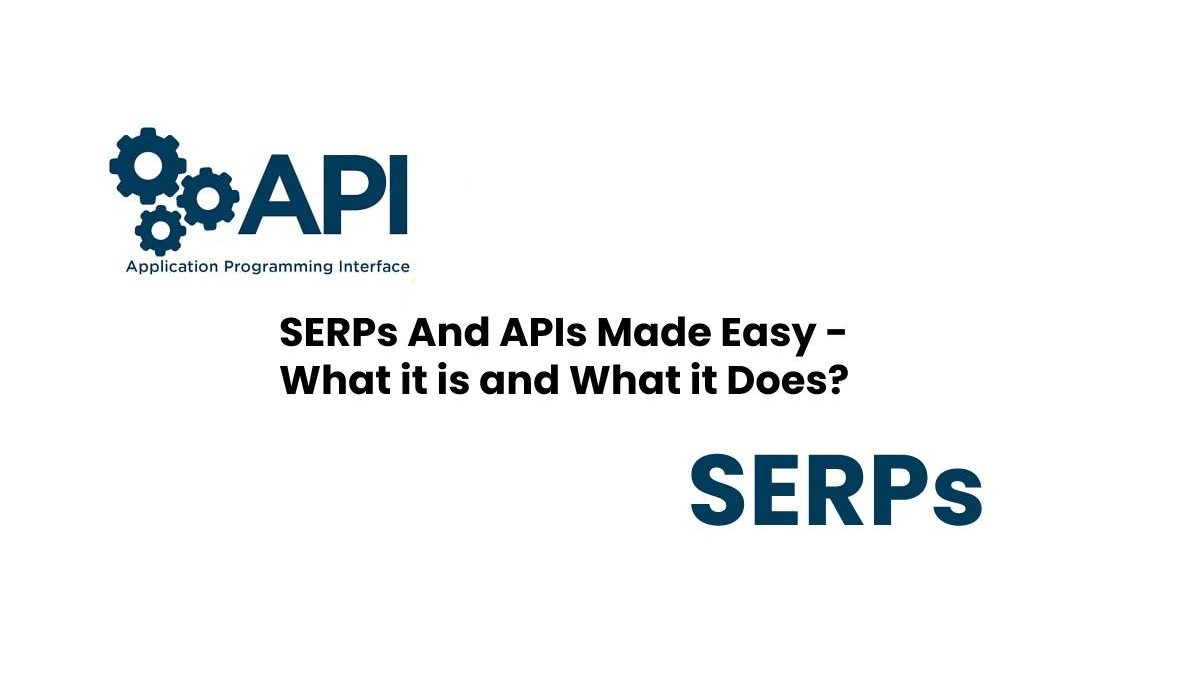Table of Contents
The Introduction
Everywhere you go, you’ll likely come across acronyms like LOL or Omg. But, the most popular ones around workplaces in recent times are SEO, SERPs, APIs.
Now, for someone who doesn’t speak computer, it all sounds like Greek. But, most of these abbreviations are used for technologies that are already part of our lives. And, only makes life easier for us.
So, let’s get to talking about APIs and SERP.
What are SERPs?
Every time you put a query into any search engine such as Google, or Bing, you get listings of web pages pertinent to the given topic. The words or phrases put in are known as the keyword.
SERPs, also known as, Search Engine Result Pages, are the resulting web pages to your query. Hence, every time you say, “just google it” know that it’s the SERPs that have come to provide you with the information you need.
Also, know that every SERP is unique. And, yes we mean that quite literally. Therefore, if you use similar keywords, the same device from the same location, to make a query even a few minutes apart, the SERP is going to be different.
It may even look identical but it will have subtle changes.
Why is that so?
Well, a lot of factors affect SERPs. The current physical location, the social setting on the device being used, even the browsing history are all factors that matter.
Then, most search engines conduct frequent experiments that do result in changing SERPs. Not to mention, the ever-evolving technologies of search space have a significant influence on SERPs.
There are of course different types of SERPs. These are organic SERPs and paid SERPs. Organic SERPs appear due to the search engine algorithms that generate SERPs.
Whereas, paid SERPs are paid to be displayed by the advertiser. The thing to remember is that there are three primary kinds of searches. And, the SERP you get for each will vary.
Informational searches are done to find information about a given topic. For example, you want to know about Hilary Clinton, the SERP you’ll get is going to be an organic one, unless she runs for the presidency again.
Navigational searches are done to find the location of a specific website.
And, transactional searches are done with commercial intent. This search features words like ‘buy’ or ‘pricing’. And, it is for searches such as these that paid SERPs pop up on the screens of your devices.
At this point, you might be wondering where and how APIs come into the picture.
API, short for Application Programming Interface, is simply a software intermediary. It can be used by programmers to create new software and allows two applications to communicate with each other.
For Example, Sir is a search engine that uses APIs. So, if you’re asking Siri for the weather, you won’t get listings of weather webpages.
It’s linked to Yahoo! Weather Site, and from there you simply get the exact research for your query. That’s how effective APIs are.
And, fairly integrated into our lives too.
Conclusion
We’re hoping that this article provided you with the insight required to understand SERPs as well as APIs. And, if you want to make life easier for yourself, click here for a google image api. It’s a real life-saver.

